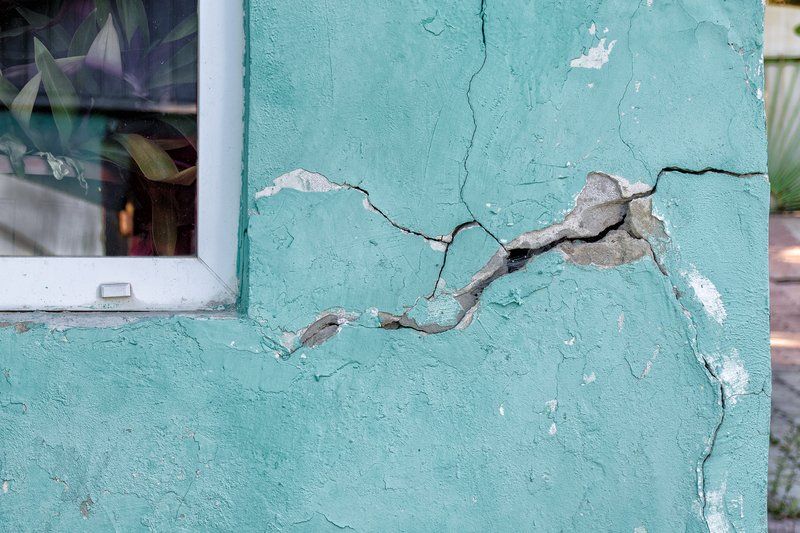Common Home Damage That Occurs in the Winter
- By Multifuse Team
- •
- 01 Dec, 2021
- •
With various holidays during the winter, it is easy to get distracted and forget simple home maintenance. The last thing you want is a structural issue with your home in the middle of winter, especially considering repairs often mean exposing your home to the elements even more until everything is patched up. Unfortunately, because of extreme elements and cold temperatures, home damage is common during the winter. This article will discuss common home damage and how you can avoid catastrophic damage in the winter.
Water Leaks
Freezing and fluctuating low temperatures during the winter make water leaks more likely to occur. Freezing water within your plumbing puts a lot of stress on your pipes, causing cracks. Water can also find its way inside your home from outside sources. Poor attic insulation, holes in your siding, clogged gutters, and your HVAC system all put you at risk for water leaks. To avoid costly repairs, it is important to identify leaks immediately. Determine the source of the leak and perform necessary protective measures. If your leak is from a pipe, immediately shut off your water. Exterior related leaks should be patched and repaired as soon as possible.
Frozen Pipes
During the winter, extreme temperatures will affect your plumbing system. When pipes freeze, the water inside expands and can cause a leak. When a pipe freezes, it can burst and cause substantial water damage. One of the best things you can do is keep the interior temperature consistent. This will help keep water liquid. If your home loses power and is unable to heat the home for a significant period of time, open the cabinets near plumbing to let as much warm air circulate through as possible. If you plan on being away for an extended period of time, it is wise to shut off the water to your home and drain your pipes. This will prevent a pipe from bursting while you are away, causing catastrophic damage.
Foundation Cracks
Ice can be the enemy of your home’s foundation during the winter. The frost heave cycle describes when the ground freezes and melts again. This cycle can result in the soil shifting and moving under your home’s foundation. This will cause cracks and other damage. Water that finds its way inside the cracks can expand when frozen, causing even more damage. When preparing for winter, it is important to fix yard drainage issues to prevent excess water from flowing towards your foundation. You should also repair foundation cracks and waterproof your basement as much as possible to mitigate damage.
Driveway Cracks
It is natural for small cracks on your driveway to develop over time. Cracks can result in water entering your paving and causing further damage. Freezing temperatures cause the water to expand and create larger cracks and potholes in your driveway. A driveway that is not properly sealed can cause flooding to your foundation. A rough driveway can also impact the maintenance needs of your cars. Fix uneven surfaces before they become damaging. Prior to winter weather, it is wise to seal your driveway which will prevent water damage.
House Fires
As temperatures drop, many homeowners use space heaters and fireplaces to heat their home. Unfortunately, these methods come with a high risk of fire. Outlets can become overwhelmed and catch fire. Nearby objects can also become too hot and catch fire. Christmas trees are also extremely flammable and prone to catch fire in the winter. To prevent a heater or fireplace fire, it is important to follow the manufacturer’s instructions for using the heating element. Keep objects at least 36 inches from the device to prevent catching fire. You should also never leave heaters unattended. These practices will mitigate the increased risk of house fires during winter.
Roof Damage
Ice dams and winter storms can do a lot of damage to your roof. If your roof is not strong, ice or heavy snow can collapse it. Ice dams form when the snow on the roof melts, runs to the edge, and refreezes. This forces water to back up under the roof which can cause leaks and deterioration. Frozen water can also put a lot of stress on the roof’s surface area. To prevent a total roof replacement, it is important to remove snow and formation of ice dams as soon as possible. Perform regular roof maintenance during the year to ensure your roof is ready for the stress of winter.
Fallen Trees
Your roof is not the only structure that deals with tremendous weight in winter. Trees laden with snow and ice can give way to pressure. Winter storms with high winds can also cause branches to fall. Trees located near your home can be very damaging to your home and property. Before winter, it is important to trim dead branches and branches that hang over your home. This will mitigate the risk of trees compromising your home’s structure. Insurance is also beneficial in helping cover you in case something does happen. Make sure your coverage includes tree damage as not all plans cover that event.
HVAC Failure
There are several ways snow and ice can damage your home’s heating and cooling system. Snow and ice build up can cause the system to freeze, triggering an emergency shutdown. This shutdown will cut off your heat source, and risk water pipes freezing. Too much snow could block the furnace exhaust which will prevent your unit from working properly and allow harmful chemicals to pollute your air. Damage to the outdoor unit, ventilation blockage, and corrosion are also HVAC concerns during winter. Protect your HVAC system by installing a heat pump. You should also cover your AC unit to protect it from the outside elements. This will increase air flow and protect the outdoor unit.
Protecting your home during the winter requires diligent work during the winter and regular maintenance during other seasons. Putting in the work will protect you from catastrophic events that are expensive to repair. Feel safe inside your home by protecting it from the winter elements.
Read this next: Major Utility Costs That Homeowners Are Responsible For











